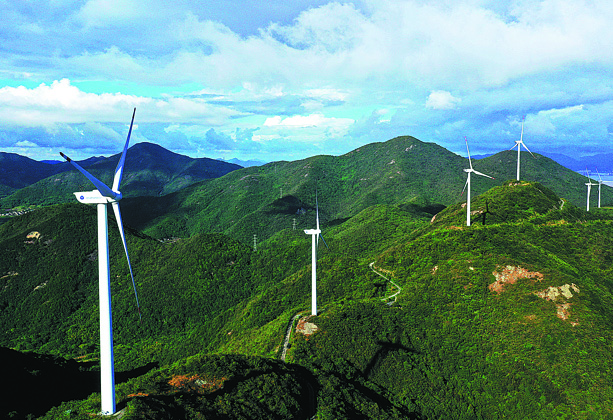China to improve policies for climate goals
By CHEN JIA | China Daily Global | Updated: 2021-10-28 09:28

It is important to balance the relationship between achieving carbon emission reduction targets and sustaining a certain economic growth pace, but not at the expense of economic growth, Wang said.
Policymakers and economists are working to ascertain the macroeconomic implications of carbon emission reduction policies and climate risks, including the impact on economic growth pace, inflation, employment and income distribution.
G20 finance ministers and central bank governors held their fourth official meeting under Italy's G20 presidency on Oct 13, and they endorsed the G20 Sustainable Finance Roadmap and Synthesis Report, which was prepared by the Sustainable Finance Working Group. This working group is co-chaired by the PBOC and the US Treasury Department.
G20 members have recognized the importance of gradually expanding the G20 Sustainable Finance Roadmap's coverage to include additional issues, such as biodiversity and nature as well as social matters, based on mutual agreement by G20 members in the coming years, according to a meeting communique.
The G20 document has listed "assessment and management of climate and sustainability risks" as one of the key actions needed between 2022 and 2024 to enhance understanding of climate policy impact on macroeconomic development.
This year, the working group highlighted priority areas such as improving the comparability and interoperability of approaches to align investments to sustainability goals. Another priority was overcoming information challenges by improving sustainability disclosure and reporting.
To reach green development targets and technological standards, policies may need to retain flexibility in economies with different structures and in various stages of development, said Hiroshi Nakaso, chairman of the Asia-Pacific Financial Forum.
It also was pointed out that policymakers need to pay attention to the significance of what is called transition finance. Enterprises, especially smaller ones, will need strong financial support for investment in innovative technologies and new energies to make a green transition, "but it doesn't happen overnight", Nakaso said.
Green finance standards and policy systems are not yet fully addressing transition finance in China and other countries, experts from China's Green Finance Committee said.
Due to the lack of definition and disclosure standards, many banks and capital market participants are considering the potential risk of "green washing", which happens when projects are falsely labeled as green to obtain cheaper financing without adhering to green standards, experts said.
























